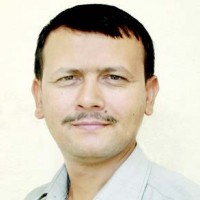Is NCP Getting Over The Hump?
Ritu Raj Subedi
Prime Minister KP Sharma Oli has passed the halfway mark of his five-year tenure in office. But, his first half of second innings as the country’s powerful executive head was not smooth-sailing. From the very beginning, he faced unintended glitches from within the ruling Nepal Communist Party (NCP) formed with the unification of two large communist forces- the then CPN-UML and CPN-Maoist Centre-- in 2018. Since both the parties came from opposite philosophical schooling, the unified party is yet to develop common ideology and finish organisational integration.
Trust deficit
The current four-month long intra-party conflict, which was settled the other day, had brought the party to brink of split. The nasty scenario largely emanated from deepening trust deficit, lack of inner-party democracy and more importantly, failure of fair power-sharing among the factional groups. The provocative statements and activities created deep fissures in the higher echelon of leadership. In the heat of blame game, PM’s nemeses accused him of running government and party arbitrarily, undermining its institutional norms and procedures. On the other hand, the establishment side hit them back, calling them spoilers and stooges hell-bent on upsetting Oli’s applecart.
When the top leaders, including co-chair Pushpa Kamal Dahal Prachanda, senior leaders Madhav Kumar Nepal and Jhala Nath Khanal demanded that the PM must quit one of his two posts, the party’s rank and file shuddered in fear and frustration for such extremist demand could jeopardise the party unity and government’s stability. Given the history of communist movements, the hostile argy-bargy within the communist parties is not new and strange. But the NCP’s wrangling bears negative consequences for the government, nation and international left movement.
The NCP carries a huge popular mandate of delivering stability, prosperity and happiness to the citizens. It had secured a resounding victory in the historic elections in 2017, riding the wave of its enhanced nationalistic credentials. It was a roaring success for Nepali communists after 70 years of the establishment of the party. The world was also impelled to watch this development with awe, as the communists had risen to power through the ballot.
It was a sheer irony that futile bickering bogged down country’s strongest government formed in decades. Both the government and the party were pushed onto the defensive, with influential leaders unwilling to defend the government and its decisions. Such a divisive posture deprived it of producing synergic impact in favour grand nation-building task. It also eclipsed early momentum and modest gains of government. The more bizarre thing was that the infighting raged at a time when the COVID-19 pandemic gripped the entire country.
Amid the criticisms of party’s lackadaisical posture, its Standing Committee meeting on Friday sorted out major disagreements, giving a new lease of life to the party. It has formally settled the work division of two chairs. Prachanda from now onward would oversee party activities as its executive chairman while PM Oli would solely focus on the affairs of government. This win-win accord is expected to reduce their workload as well as increase their efficiency in running the party and government as per expectation of public.
The government will consult the party on the issues of national importance such as the drafting of vital Bills prior to their tabling in the House but the latter will not interfere in the day-to-day activities of former. It has also decided to hold the unity convention in April next year. The central committee meeting slated for October 31 will expedite the preparations for the convention which will bring two different streams of Nepali communists together to churn out common ideology, tactical programme and strategy. The SC decided to endorse the much-talked about Millennium Challenge Corporation (MCC) Compact from the parliament only after making necessary amendments to it. The conditional US grant, with its geopolitical baggage, had become a political wedge issue, pitting the government against a powerful segment of party.
These decisions are based a deal reached by the two chairs a few days back. The Madhav Nepal faction has accepted it with a pinch of salt. Nepal has been demanding that the party be operated as per the established guidelines, process, methods and principles. Apparently, the meeting has fulfilled his demand but he has aired his strong discontent with the agreement of two chairs and sought further explanation of it. It is no secret that Nepal wants more respect from the establishment and broad-based participation in major decision-making process within the government and party.
Transparency
For the time being, the NCP has sorted out its serious rift. It has been global trend that personal ego, crave for lucrative position and minor ideological deviation trigger intra-party conflict and contradiction. On many occasions, the friendly differences turn into hostile antagonism. Ironically, the rival leaders blame invisible enemy for the in-house chaos. Such a faulty approach precludes the leadership from seeing the crux of the problem. It is only with the greater transparency, coherent ideology, robust inner-party democracy and public accountability that the leadership can resolve their disputes no matter how formidable and challenging they are.
(Deputy Executive Editor of The Rising Nepal, Subedi writes regularly on politics, foreign affairs and other contemporary issues. subedirituraj@yahoo.com)
Recent News

Do not make expressions casting dout on election: EC
14 Apr, 2022
CM Bhatta says may New Year 2079 BS inspire positive thinking
14 Apr, 2022
Three new cases, 44 recoveries in 24 hours
14 Apr, 2022
689 climbers of 84 teams so far acquire permits for climbing various peaks this spring season
14 Apr, 2022
How the rising cost of living crisis is impacting Nepal
14 Apr, 2022
US military confirms an interstellar meteor collided with Earth
14 Apr, 2022
Valneva Covid vaccine approved for use in UK
14 Apr, 2022
Chair Prachanda highlights need of unity among Maoist, Communist forces
14 Apr, 2022
Ranbir Kapoor and Alia Bhatt: Bollywood toasts star couple on wedding
14 Apr, 2022
President Bhandari confers decorations (Photo Feature)
14 Apr, 2022











